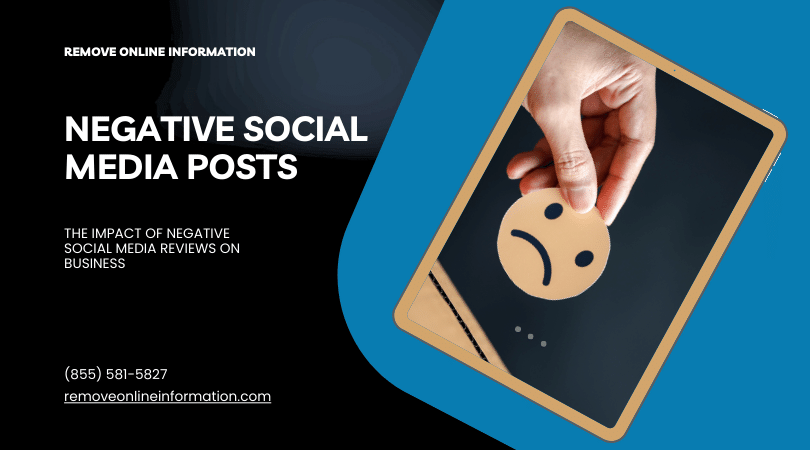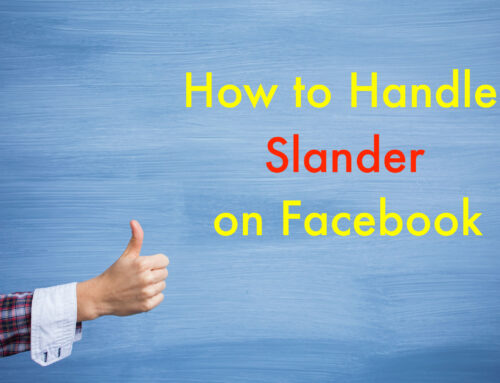In the era of social media dominance, every click and comment can send ripples across the digital landscape. Whether it’s sharing a funny meme or voicing our opinions on the latest trending topics, we have become active participants in an interconnected world like never before. But what happens when these online conversations take a turn for the worse? Today, we delve into the fascinating realm of negative social media reviews and their lasting impact on businesses. Strap in as we uncover how seemingly harmless comments can unleash a veritable tsunami that threatens even the mightiest of companies – join us as we navigate through this captivating journey to understand the undeniable ripple effect caused by negative feedback on businesses’ fortunes!
Introduction to Social Media’s Impact on Businesses
As a business owner, you are likely well aware of the power of social media. After all, it’s a powerful tool that can help you reach new customers, build brand awareness, and even drive sales.
But what you may not be aware of is the impact that negative social media reviews can have on your business. While a positive review can certainly help your business, a negative one can do just as much damage.
The fact is that potential customers often read online reviews before making a purchase. And if they see negative reviews about your business, they may very well take their business elsewhere.
What’s more, negative reviews can spread quickly and easily thanks to the power of social media. One unhappy customer can post a negative review on Facebook or Twitter, and within minutes, hundreds or even thousands of people could see it.
Of course, not every negative review is going to cause serious damage to your business. But it’s important to be aware of the potential impact that they can have and take steps to mitigate it.
Here are a few things you can do to protect your business from the damaging effects of negative social media reviews:
Negative Reviews: How They Affect Businesses
When a customer has a negative experience with a business, they are likely to share that experience with others through social media. In today’s digital world, this can have a significant impact on the business, especially if other customers see the negative reviews and decide not to patronize the company.
Negative social media reviews can damage a business in several ways. First, they can deter potential customers from doing business with the company. Second, they can make it difficult for the company to attract new customers or partners. And finally, negative social media reviews can lead to decreased morale among employees, which can eventually lead to an exodus of talent.
businesses need to be aware of the power of social media and take steps to mitigate the impact of negative social media reviews. Some tips for doing so include responding promptly and appropriately to negative reviews, monitoring social media channels for mentions of the business, and encouraging happy customers to leave positive reviews. Understanding the ripple effect of negative social media reviews is essential for any business that wants to succeed in today’s digital world.
The Ripple Effect of Negative Reviews
It’s no secret that social media can be a powerful tool for businesses. But what many businesses don’t realize is that negative social media reviews can have a ripple effect that goes far beyond the original poster.
Here’s how it works: when someone posts a negative review of your business on social media, their friends and followers will see it. And even if they don’t have an opinion about your business one way or another, the simple fact that they saw the negative review will subconsciously influence their opinion of your business.
What’s more, those friend and followers will then be more likely to post their own reviews – good or bad – based on what they saw. So not only does a single negative review have the potential to damage your business’s reputation, it also has the potential to snowball into even more negative reviews.
The best way to combat this is to be proactive about monitoring your social media presence and responding quickly to any negative reviews you see. By doing so, you can nip the problem in the bud and avoid further damage to your business’s reputation.
Strategies for Managing Negative Social Media Reviews
No one is immune to the occasional negative review, but when it comes to businesses, bad reviews can have a ripple effect that extends far beyond the original post. One angry customer can potentially damage your brand reputation, deter other customers from doing business with you, and even result in legal action.
That’s why it’s important to have strategies in place for managing negative social media reviews before they happen. Here are a few tips:
Monitor all of your social media channels regularly so you can quickly spot any negative reviews or comments.
Respond promptly and professionally to any negative reviews, apologizing and offering to make things right.
Reach out to the customer offline if possible to resolve the issue privately.
Consider offering a discount or incentive for customers who leave positive reviews or testimonials on your social media page.
Use negative reviews as an opportunity to learn and improve your business. Pay attention to any patterns or common issues that come up so you can make changes accordingly.
Using Positive Reviews to Counter the Negative Ones
When it comes to social media, businesses should be aware of the impact that both positive and negative reviews can have. Negative reviews can obviously damage a business’s reputation, but positive reviews can help to counterbalance the effects of the negative ones.
Positive reviews can help to boost a business’s image and make it seem more trustworthy and reliable. They can also encourage potential customers to actually try out the product or service being reviewed. In contrast, negative reviews can put potential customers off of even considering a business, regardless of how good their product or service may actually be.
It is therefore important for businesses to actively encourage their customers to leave positive reviews on social media. This can be done through offering incentives, such as discounts or freebies, or simply by providing excellent customer service so that customers are more likely to spontaneously leave positive feedback.
At the same time, businesses should also keep an eye on their social media presence and try to quickly address any negative reviews that do pop up. By responding professionally and courteously, businesses can show that they care about their customers’ opinions and are willing to listen to constructive criticism. Addressing negative reviews in this way can help to limit the damage they cause and prevent them from spreading too far.
Taking Action Against Trolls & Abusive Users
There are a number of steps businesses can take to protect themselves from trolls and abusive users on social media. The first step is to identify the problem. This can be done by monitoring your social media channels for negative comments or reviews. If you see something that is clearly trolling or abusive, take a screenshot of it and report it to the platform where it was posted.
The second step is to respond to the troll or abusive user. This can be done by either engaging with them directly or by issuing a public statement. If you engage with the troll or abuser, do not stoop to their level – remain calm and professional. If you issue a public statement, make sure it is clear that your business does not tolerate trolling or abuse and that you will take action against anyone who violates your terms of use.
The third step is to take action against the troll or abuser. This can include banning them from your social media channels, reporting them to the platform where they posted the abuse, or taking legal action if necessary. Taking action against trolls and abusers shows other users that you are not tolerating their behaviour and helps to create a safer, more positive environment for everyone involved.
Conclusion
Negative reviews can have a negative impact on businesses. They can cause customers to look elsewhere for the products and services they need, resulting in lost revenue, higher costs, and even reputational damage. Businesses should take all necessary steps to avoid this ripple effect by responding swiftly and effectively to negative reviews on social media platforms. By doing so, they will help limit any potential losses while taking proactive measures to improve customer service standards in order to gain a competitive edge over their rivals.




